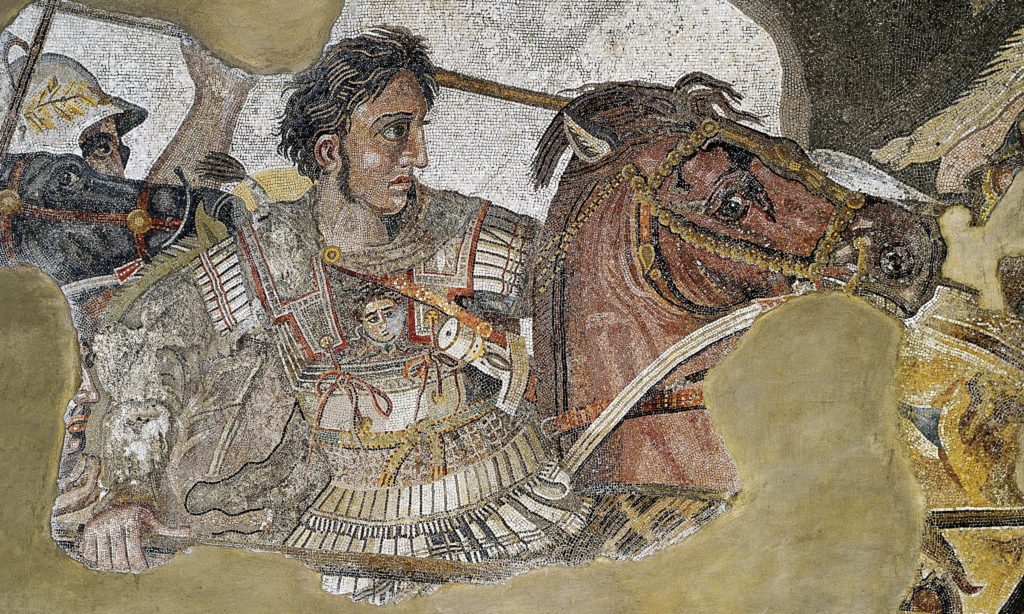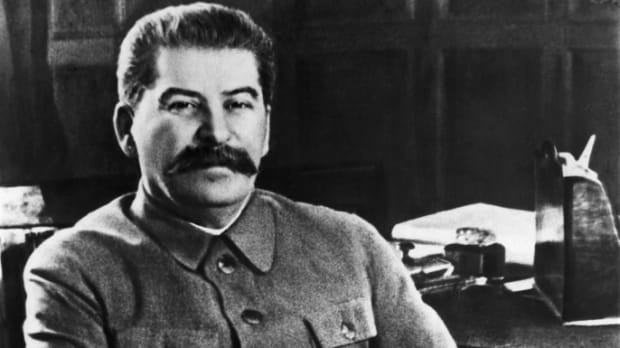Last updated on December 9th, 2022 at 04:43 am
Alexander III of Macedon, or Alexander the Great as popularly called, is one of the world’s most successful commanders. He is a half-Macedonian who became the most famous emperor of Greece. He inherited the crown at age 20, in 336 B.C. He spent most of his ruling years conducting a lengthy military campaign across Western Asia and Egypt.
Alexander the Great’s life encapsulates all that is awe-inspiring and dramatic in human lives. He was born a prince, educated by Aristotle. He would be a conqueror. The son of Olympias and King Philip II, his arrival was welcomed with a significant win in a battle against the Illyrian by General Parmenion.
Want to know a few things you might not have been aware of about one of the most influential and well-rounded figures in history? Check out this list of 10 things that show just what a modern-day legend Alexander the Great truly was.

1. 15 Years Of Conquest And Alexander Never Lost A Battle
After his first victory at 18 years old, Alexander became known as a general that never lost a battle. His impressive military strategies are still thought of in many military academies today.
He uses the remarkable speed of his men in battle; before the foes get ready, his smaller forces reach the line and break the enemy line. Despite being outnumbered most times in battle, his great defeats are attributed to the Macedonian Phalanx.
After the consolidation of Greece in 334 B.C., he matched into Asia (present-day Turkey), winning several battles against Darius III.
One of his most reputable wars was the Battle of Granius, which led to the surrender of Persia’s provincial capital and the Sardis treasury. The 15,000-strong Macedonian phalanx served as the backbone of Alexander’s army, and its troops used 20-foot-long “sarissa” pikes to repel the sword-wielding Persians.
2. He Was Tutored By Aristotle But Had Run-ins With Other Philosophers
Nearly 20 years of Alexander the Great’s studentship with Aristotle hints at a remarkable contrast. While the latter had an excellent hold of his mind, the former wielded the sword with flawless skill. This would make one wonder why the philosopher chose to be his master in the first place.
At the behest of Philip II, Aristotle took on the job of shepherding the then-lad Alexander with the hopes of bringing up a knowledgeable emperor.
One that would rule and hurl the people of Macedonia and beyond into a new world poised on justice. For about three years, he transformed Alexander into a well-thinking young man through philosophy, natural science, and mathematics.
It’s no doubt that the effect of these teachings took form in young Alexander. Especially as the 19-year-old became the most powerful man in the world. He dominated various cities far across Asia Minor and India.
Interestingly, Alexander is a downline in the ancient wisdom dynasty passed from Socrates to Plato and Aristotle. Hence the reason he doubles as the philosophy and ruthless king.
3. Alexander The Great Named Over 20 Cities After Himself
Founding cities named after him was a signature of Alexander The Great; these cities were usually founded around previous military bases of the conquered city. The most popular is Alexandria in Egypt, established in 331 B.C. at the tip of the Nile.
Other Alexandrias are located in Mesopotamia, Iraq, Turkey, Afghanistan, Pakistan, and other parts of north-western Asia that his armies advanced to during his military campaign.
These cities flourished not only when he was alive but also after his death; many cities became packed with elaborate buildings and high populations.
4. A City Named After His Horse
The great military commander was only 10 when he met his beloved horse, Bucephalus. History has it that the horse originally came from Thessaly in Greece and was offered to be sold at 13 talents to king Philip. However, the horse was feral, and nobody could mount it.
The King was about to send it away, but Alexander decided to pick it up and tame it. Plutarch stated the King was delighted at his child, that he tearfully kissed him and said words that became evident in the boy’s life.
His horse later carried him as far as India, where the horse sustained an injury during a war and died. Instead of naming the city after himself, as usual, he named it Bucephala, after his warhorse. We could say that when Alexander the great loves, he loves deeply.
5. Alexander The Great Was Also A Builder
Even though he was an emperor with good tactics, Alexander 111 of Macedon, also known as Alexander the Great, was a great strategist, military commander, and remarkable emperor. From his ascension to the throne, he embarked on the most prominent military campaign ever in human history.
Only after that did he secure his position by ending the rebellions that started after the death of King Philip. He also reformed the taxation system of the Greece people, and he organized the military.
While he was away, he put Antipater to oversee the kingdom. Alexander tried to imbibe the culture of the territories he conquered to gain favor with the locals.
For instance, he started to dress like the Persians after he conquered their territory, although this was met by stirring opposition from the Greek people. He also built new temples in places like Egypt, which led to his acceptance by the people.
6. Alexander The Great Fell In Love At First Sight
At age 28, in the early spring of 327 B.C., Alexander and 300 volunteers had a spectacular conquest at Sogdian Rock. This fortress is located North of Bactria in Sogdiana and was considered impregnable. Alexander came out victorious without a battle.
He called 300 men to himself and had them climb the rock using tent pegs and solid flaxen lines. Of the 300 men that started the climb, 30 fell to death, leaving only 270 at the top of the rock, all waving bits of linen. It was quite a sight, as you can probably imagine.
The defenders of the rock quivered in fear as Alexander asked them to look up and see his ‘winged’ men. They immediately surrendered.
While surveying the captives, Alexander saw the teenage daughter of a nobleman of Bactria. Her name was Roxana. The Macedonians claimed she was the loveliest woman in all of Asia, only second to Darius’ wife. Alexander fell in love at first sight, and Roxana gave birth to his son, Alexander IV, a couple of months after Alexander the Great’s death.
7. Persia Offered Him Peace, but He Refused
Darius was first to stretch out his arms in peaceful purport to Alexander. But the tone of the Persian monarch’s proposed settlement was one he dejected. He offered to give up some portion of Asian Minor to Alexander. This area was one Philip had always wanted.
When Alexander read the letter, he was more engrossed in the arrogant tone and missed the offer. The officers who were also around on hearing the manner of the writing encouraged Alexander to advance with his movement. Later on, he sent a reply vindicating the cause of their claims.
While Alexander the Great continued to damage Persian fleets, he indirectly gave them more time to amass more men in their army. After conquering Persia, he took an unprecedented slower step into invading the Persian empire. Instead, he first ensured he secured coastal areas.
Many cities under the rule of Persia pestered them to surrender to the Macedonians. That was after Alexander the Great had found his way into these places and appointed loyal statesmen. Tyre, the only city that stood its ground against the tyranny, was eventually subdued after seven months.
8. He Had Severe Problems With His Family
Alexander’s relationship with his family and kids was atypical. He had to fight to have his voice heard in his polygamous household. Phillip had many mistresses and offspring who disapproved of his ascension.
While his father was assassinated in front of him, he had to slay a few of his kin that could antagonize his succession.
Olympias, his mother, was a conceited and ambitious woman. And she didn’t hide her disgust for Philip. She always showed how she opposed his debauchery. And she tried to pass down this hatred for her husband to her son.
While she loved Alexander, she couldn’t help her self-centered plans and what became of her future. She helped him secure his claim to the throne by poisoning Philips’s older sons. However, her relationship with Aristotle and Alexander the Great remains controversial.
Olympias died a brutal death at the hands of Kassandros. Potentially another tale of blood thirst from a warlord. Also, it could be a payback for the death of his ruler, for which he held her responsible.
Philip and Alexander’s relationship was good for the most part; it was the typical father-son bond. However, they quarreled in the last days of the latter. Yet, the older man had a fond trust in his son.
9. He Suffered A Mutiny
Alexander’s army sometimes held back when they discovered his plan of crossing the Ganges River to plunder India. During this period, most of these saddled men were exhausted from years of war and were unsure what resistance they could meet at the Ganges.
While they didn’t become violent against their leader, they only refused to march on his command. He waited three days for them to yield. But when they didn’t, he had no option but to retreat.
Also, when Alexander decided to pay off their debts and make them go back to Macedonia, another mutiny occurred. Perhaps this was because he wanted to fill the Persian troops in their place. While his motive for this was pure, his swordsmen interpreted it as an insult and stood their ground. They refused his orders, and the wages were something they weren’t coveting.
Alexander’s response to this signaled his displeasure with their attitudes. He then promoted several Persian armies, giving them Macedonian titles. Afterward, his protesting battalions had no option but to reconcile with their commander.
10. His Death Was a Mystery
The demise of the great military genius and philosopher king at 32 is debatable. It was documented that he fell ill and died in Babylon. However, many scholars remain skeptical about the cause. Several authors have come up with various ailments like malaria and typhoid fever, perhaps because he showed signs of fever, chills, and sweats during his last weeks. Yet, none of these speculations is entirely grounded.
In fact, in a release by the Ancient History Bulletin, it was said that the cause of his death was Guillain-Barré Syndrome. This is a condition that causes paralysis due to bacterial infections.
Stories alleging poisoning have also ensued, perhaps for political reasons. And, of course, the most probable culprits are one of his wives, generals, and illegitimate brother.
After his death, his kingdom fell almost immediately.
When All Is Said And Done
Alexander, although he had his flaws, was loved by many. Even after more than 2,000 years, Alexander the Great remains one of the most fascinating and enigmatic figures in history.
In just a few short years, he conquered most of the known world and forged an empire that history would never forget. Alexander the Great left a lasting legacy and is considered one of the greatest men ever to have lived.

